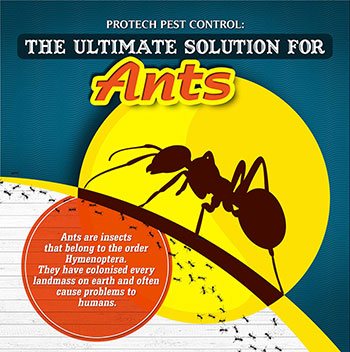Securing Your Yard From Vermins: Strategies For A Pest-Free Outdoor Area
Securing Your Yard From Vermins: Strategies For A Pest-Free Outdoor Area
Blog Article
Material Writer-Lambertsen Pittman
Visualize your garden as a haven, an area of serenity and beauty. However, the existence of outdoor pests can promptly interrupt this ideal picture. What if there were easy yet effective ways to maintain these unwelcome site visitors at bay and protect your yard oasis? By adhering to a few practical tips and implementing natural strategies, you can create a harmonious exterior room where your plants can flourish undisturbed.
Natural Bug Deterrents
To maintain pests away from your garden normally, plant fragrant natural herbs like mint and lavender. These fragrant plants not only include appeal to your yard but also serve as reliable insect deterrents. Parasites like mosquitoes, flies, and also some garden-damaging insects are pushed back by the strong scents discharged by these herbs. Merely putting them tactically around your garden can help create a natural obstacle versus unwanted parasites.
In addition to mint and lavender, take into consideration growing various other herbs like rosemary, basil, and lemongrass to even more improve your garden's pest-proofing capacities. These natural herbs not only serve as natural repellents yet additionally have the included advantage of serving in cooking or crafting homemade remedies.
Strategic Plant Placement
Think about the layout of your yard and the types of plants you have to purposefully put them for maximum pest-proofing effectiveness.
Start by grouping plants with comparable resistance to parasites together. By doing this, you can create an all-natural barrier that prevents pests from spreading out throughout your garden.
Furthermore, placing pest-repelling plants like marigolds, lavender, or mint near more susceptible plants can aid secure them. High plants, such as sunflowers or corn, can function as a shield for much shorter plants versus pests like bunnies or ground-dwelling insects.
Bear in mind to leave sufficient room in between plants to boost air blood circulation and minimize the risk of illness that pests may carry.
Moreover, take into https://communityimpact.com/dallas-fort-worth/richardson/public-safety/2022/05/16/richardson-animal-services-offers-tips-on-minimizing-contact-with-coyotes/ planting strong-smelling natural herbs like rosemary or basil near at risk plants to puzzle insects' senses and make it harder for them to situate their targets.
Effective Bug Control Approaches
For combating yard parasites efficiently, applying a multi-faceted pest control strategy is important. Begin by encouraging all-natural predators like birds, ladybugs, and hoping mantises to aid keep insect populations in check. Introducing plants that draw in these beneficial insects can aid in bug control. Furthermore, exercising great garden health by eliminating debris and weeds where insects might hide can make your garden less congenial to unwanted site visitors.
Consider using physical barriers such as row cover textiles or netting to secure at risk plants from pests like caterpillars and birds. Applying ants and bugs pest control like neem oil or insecticidal soap can also work versus certain parasites while being much less hazardous to beneficial bugs and the setting. It's crucial to revolve your crops each period to prevent the buildup of insect populaces that target details plants.
Consistently check your plants for indications of insect damage so you can take action immediately. By incorporating these techniques and remaining cautious, you can successfully regulate garden parasites and enjoy a successful, pest-free garden.
Conclusion
So, there you have it - with the ideal approaches, you can keep pesky exterior insects far from your garden and assist your plants thrive.
Did you recognize that growing mint has been shown to ward off mosquitoes and various other insects, minimizing the requirement for hazardous chemicals by approximately 60%?
By integrating all-natural deterrents and clever growing methods, you can create an attractive and pest-resistant yard sanctuary for you to enjoy.
